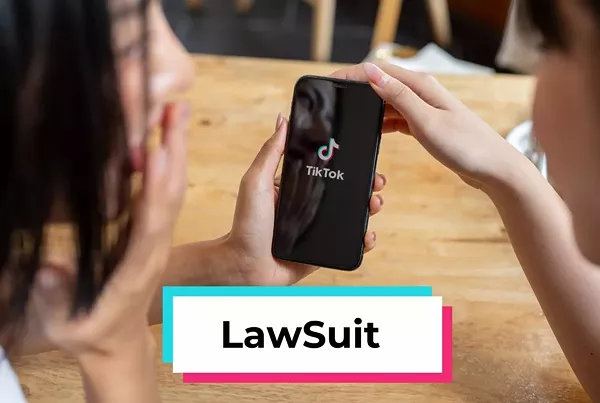
Other social media giants are also fighting the case in court. Now it’s TikTok’s turn to be in the spotlight, with multiple state attorneys general alleging that the company has been dishonest when it comes to the safety of young people. Claims that TikTok is addictive and dangerous to teenagers and children have come to light now that documents have emerged showing the social media company was well aware of the harmful effects posed by the app. It’s heavier than before.
So… who is responsible for protection here? Are you a company looking to make a lot of money, or are you a parent responsible for protecting your children both online and offline? 14 Attorney Generals say company executives believe the platform is particularly addictive to teens The company says it bears at least some responsibility, given that it has chosen to market its platform to a younger demographic.
The complaint alleges that despite knowing that the app was highly addictive and negatively impacting the mental health of its users, little was done to reduce the risks. There is. TikTok has put in place some safety measures, but they have proven to be generally ineffective. An internal study was conducted to study how to prevent negative side effects on teenagers, but the proposed tools presented were not necessarily effective in reducing app use among teenagers . Have you tried to reduce your child’s screen time lately? In a post-COVID-19 world, their interactions will be both online and offline, and if you cut off their access to their peers. Even if they do, they’ll probably find a way to find something, even if the places their peers are hanging out digitally aren’t ideal. When your friends are in your favorite virtual living room, with or without screen time limits;
TikTok’s actions clearly prioritized engagement and profit over user safety, and the harm reduction features they introduced were clearly intended for optics rather than actual safety.
So how do we hold big corporations accountable for the harm they intentionally cause, especially when the group most affected is one of the most vulnerable sects of the population? Teenagers It’s hard to be. Even without the pressures of social media, a lot of things are changing rapidly, and your brain is being soaked with a ton of new hormones that it’s not used to dealing with. Throw in a highly addictive app that all your friends are using, and disaster ensues.
Our world is now online. It’s toothpaste that can’t be put back into the tube. As people move through the physical world, measures are in place to keep us all safe. Think about things like traffic lights, business hours for many businesses, and participation rules that must be followed. Given our (relatively) new shared virtual reality, it seems unreasonable to ask virtual reality designers to: The world is seriously considering creating systems and measures to keep its citizens safe when participating in the online world.
TikTok is not the only social media company facing legal troubles over user safety issues. Meta and Snapchat are also in court over similar issues. These companies often use the concept of “user freedom” to cover up addictive features that keep users scrolling, and attempt to provide algorithms that generate billions of dollars in profits. Regulation of addictive functions is not a restriction of freedom. This is a much-needed safeguard for social networks that allow teens and children to participate as members of virtual communities.
Do parents also have some responsibility? absolutely. But now, with the rise of social media and a lack of protection within virtual communities, parents are turning to safety nets as their teens experience higher levels of anxiety, depression, and low self-esteem than ever before. I’m living without it.
Although we cannot predict the outcome of this latest lawsuit, we can offer some suggestions to parents reading this. Once your child is online, that’s it. You cannot cancel your selection. Even with parental supervision, participating in social media is dangerous for brain development. We can’t speak for everyone, but here’s the best advice we’ve found when it comes to teens and social media. Unless the child is ready to become an adult? Please reconsider allowing full access to social media. Also includes TikTok.


